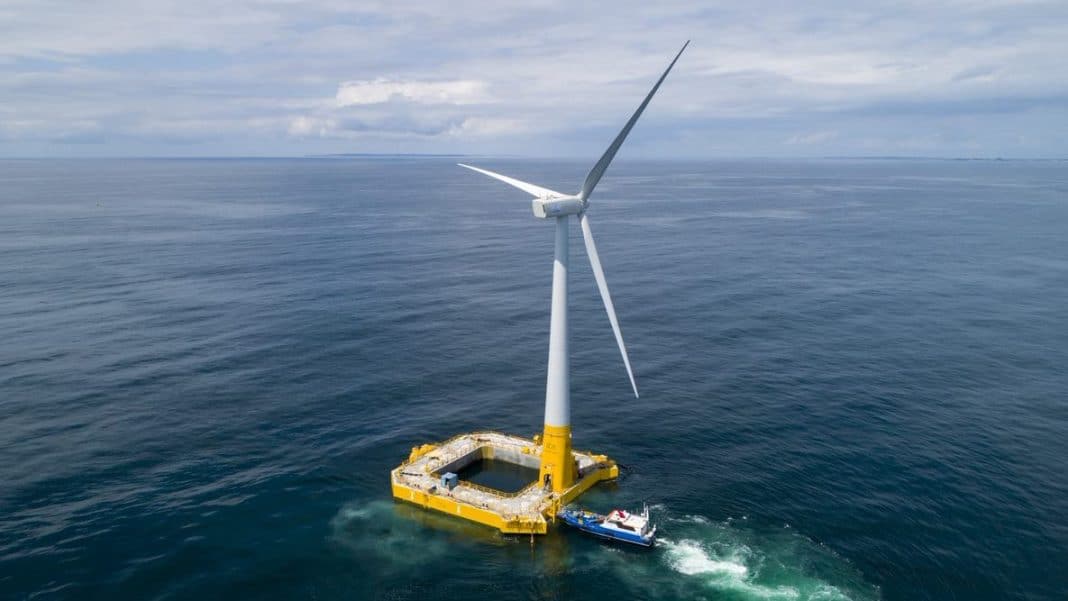The Crown Estate has set out further details on its plans for Offshore Wind Leasing Round 5, which aims to establish new floating offshore wind technology off the coast of Wales and South West England. The update includes details on the final planned locations for the new windfarms, as well as further information on a multi-million-pound programme of marine surveys.
Round 5 is expected to be the first phase of development in the Celtic Sea, with The Crown Estate working to catalyse and accelerate the UK’s energy transition, and to de-risk developments to speed up their deployment. This includes investing in an upfront Habitats Regulation Assessment, an extensive programme of marine surveys and working with the Electricity System Operator on a coordinated approach to grid design.
This latest update follows a period of engagement with developers and wider stakeholders on proposals set out in July over how to make best use of available space in the Celtic Sea. As a result of the feedback received, The Crown Estate has confirmed that:
- Three Project Development Areas (PDAs) of roughly equal size are expected to be made available to bidders, as opposed to the previously proposed four PDAs of varying sizes
- No bidder will be able to secure an Agreement for Lease for more than one PDA
- As a result of bringing forward three equal-sized PDAs – each with a potential capacity of up to 1.5GW – the overall capacity available through Round 5 has increased from a possible 4GW to up to 4.5GW, enough to power more than 4 million homes
An Information Memorandum is expected to be published before the end of this year ahead of the formal start of the leasing round.
After seeking feedback from industry and other stakeholders, The Crown Estate has updated its design to represent better optimisation of the seabed, and give developers greater flexibility by providing more developable space in each of the three areas.
In turn, this lays a secure foundation to realise the significant benefits on offer through establishing a successful floating wind industry around the Celtic Sea. Not only will Round 5 support the UK’s transition away from fossil fuels and strengthen its energy security, The Crown Estate will also use the leasing round to drive broader social and economic value.
This includes requiring developers to set out specific commitments to ports, as well as establishing binding commitments on wider issues such as enhancing skills, addressing environmental impacts and delivering community benefits as part of the leasing process.
New aerial surveys get underway
Alongside information on the location and size of the new windfarms, The Crown Estate has also updated developers on its multi-million-pound programme of marine surveys. The studies are designed to provide developers with vital data to help inform their decision making and de-risk projects at an early stage, as well as support winning bidders through the consenting process. The latest phase of this work started on 24th September, with specially-equipped aeroplanes taking to the skies to gather data on the sea birds and marine mammals around the project sites and more widely in the Celtic Sea. This follows the award of a contract to leading aerial surveyors HiDef for a two-year programme. Developers have also now been told that comprehensive technical specifications for the whole programme of surveys will be published later this month, giving a complete picture of the data that will eventually be available.
Gus Jaspert, Managing Director Marine at The Crown Estate, said:“At its heart, The Crown Estate exists to create value both now and for future generations, whether that’s helping tackle climate change and nature recovery or enabling economic growth. Through our role in managing the seabed, we want to catalyse the transition to Net Zero in the right way – driving the continued growth of new renewable technology such as floating offshore wind, while ensuring we support a thriving marine environment and create new social and economic opportunities.
“Round 5 is set to be one of the biggest projects of its kind in the world, and will be a game changer for the UK’s energy security and net zero ambitions. It also stands to be transformative for communities across South Wales and South West England. Businesses and communities of all sizes stand to benefit from the opportunities on offer, but it will require ongoing collaboration to make these a reality. We will continue to work closely with governments, industry partners and our full range of stakeholders to drive the partnerships needed to truly realise the full potential of floating wind in the Celtic Sea.”












